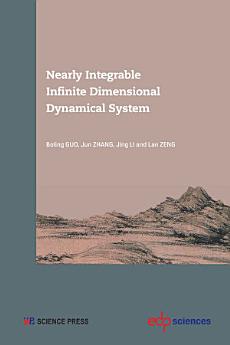Nearly Integrable Infinite Dimensional Dynamical System
આ ઇ-પુસ્તક વિશે
લેખક વિશે
Boling GUO, an Academician of the Chinese Academy of Sciences and a researcher and doctoral supervisor at the Institute of Applied Physics and Computational Mathematics, is primarily engaged in research on nonlinear evolution equations and infinite-dimensional dynamical systems. Guo has been awarded one first prize and one third prize of the National Natural Science Award, as well as two first prizes of the Science and Technology Progress Award from the National Defense Science and Industry Commission.
Jun ZHANG, a Professor and Master Advisor at the College of Science, Zhejiang University of Technology, is primarily engaged in research on nonlinear evolution equations. Zhang has received funding for two projects from the National Natural Science Foundation of China and one project from the Natural Science Foundation of Zhejiang Province.
Jing LI, a Professor and Master Advisor at the School of Mathematics and Statistics, Changsha University of Science and Technology, is primarily engaged in research on nonlinear evolution equations. Li has received funding for three projects from the National Natural Science Foundation of China and two projects from the Natural Science Foundation of Hunan Province.
Lan ZENG, an Associate Professor and Master Advisor at the School of Mathematical and Physics, Beijing University of Chemical Technology, is primarily engaged in research on the stability of various equations in fluid mechanics. Zeng has received funding for one project from the National Natural Science Foundation of China and one project from the China Postdoctoral Science Foundation.





